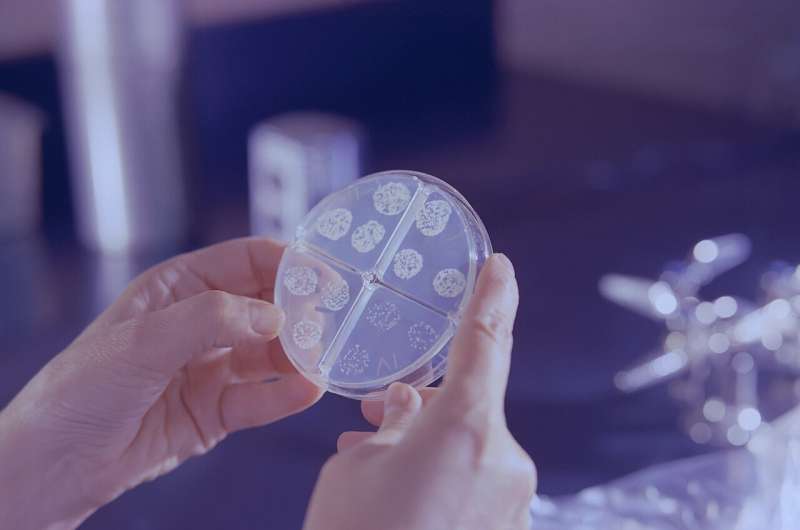Innovative AI Technology Enhances Skin Cancer Diagnosis in Remote Communities

A groundbreaking AI system developed by Heriot-Watt University aims to transform skin cancer diagnosis in remote regions, enabling early detection with low-cost and independent devices. This innovative approach could revolutionize healthcare access worldwide.
A pioneering project led by researchers at Heriot-Watt University is utilizing artificial intelligence (AI) to revolutionize skin cancer diagnosis, especially in underserved and remote areas. Over the past two years, Ph.D. candidate Tess Watt has developed AI-enabled tools capable of diagnosing skin conditions, including skin cancer, without the need for specialist dermatologists or advanced medical infrastructure. Her goal is to enable early detection and treatment through accessible technology that can be deployed globally, from rural Scotland to West Africa.
Watt emphasizes the importance of remote healthcare, especially as general practitioner (GP) wait times increase. Her AI system allows individuals to monitor skin lesions from home, potentially reducing diagnostic delays significantly. The project is part of a larger collaborative effort involving institutions like London South Bank University, Edinburgh Napier University, and the Foundation for Research and Technology—Hellas in Greece. Notably, it is believed to be the first initiative combining AI-based medical diagnosis with a focus on serving remote and resource-limited communities.
A prototype demonstrates how the system can analyze images of skin lesions in real-time, flagging risks for further medical review. What's innovative is its independence from internet connectivity. Using low-cost Raspberry Pi devices, the system efficiently diagnoses skin conditions through images captured with attached cameras. These diagnoses, which currently achieve up to 85% accuracy, are then relayed to local GPs for treatment planning. Researchers aim to improve accuracy further by expanding their datasets.
While still in the testing phase, Watt is in discussions with NHS Scotland to initiate ethical approval and pilot testing within the next couple of years. The long-term vision is to expand this technology across remote Scottish regions and eventually worldwide, providing vital support to patients who are physically unable to travel. The system's design emphasizes resilience, ensuring it can operate independently of network connectivity—a critical feature for challenging environments.
Watt’s interest in health AI was sparked by work in accessible translation tools, and her current research into Tiny Machine Learning and underexplored AI applications in medicine. She recognizes the significant potential of using simple photographic data for diagnoses, contrasting with the more common use of X-rays and MRIs.
As healthcare systems face increasing strains, this remote diagnostic technology offers a promising solution for delivering timely, equitable medical care. Watt remains committed to translating her research into practical applications, aiming to see her innovations reach patients in the near future.
Supported by Heriot-Watt University's Global Research Institute in Health and Care Technologies, her work aligns with broader global health initiatives like the "One Health" project, addressing infectious diseases and antimicrobial resistance by integrating human, animal, and environmental health strategies.
This development underscores the importance of resilient, accessible medical technology, potentially transforming how skin cancer and other skin conditions are diagnosed and managed worldwide.
Stay Updated with Mia's Feed
Get the latest health & wellness insights delivered straight to your inbox.
Related Articles
Educational Strategies Drive Adoption of Lifestyle Medicine in Health Systems
A recent study reveals that targeted educational strategies—such as CME courses, certifications, and conferences—are key to integrating lifestyle medicine into healthcare systems, supporting clinician education and practice change.
Innovative Lipid Nanoparticles Offer Hope for Treating Rare Genetic Disease Alpha-1 Antitrypsin Deficiency
Breakthrough gene therapy using targeted lipid nanoparticles shows promising results in repairing DNA in organs affected by alpha-1 antitrypsin deficiency, offering hope for a potential cure to this rare genetic disorder.
Shorter Treatment Regimen Shows Promise for Some Patients with Drug-Resistant Tuberculosis
A groundbreaking study reveals that a shorter, targeted treatment regimen can be effective for some patients with pre-extensively drug-resistant tuberculosis, paving the way for more personalized therapies.
Understanding the 'Razor Blade' COVID-19 Variant and Its Symptoms
A new COVID-19 variant called Nimbus has been associated with a distinctive 'razor blade' sore throat, prompting increased surveillance and ongoing vaccination efforts worldwide.



